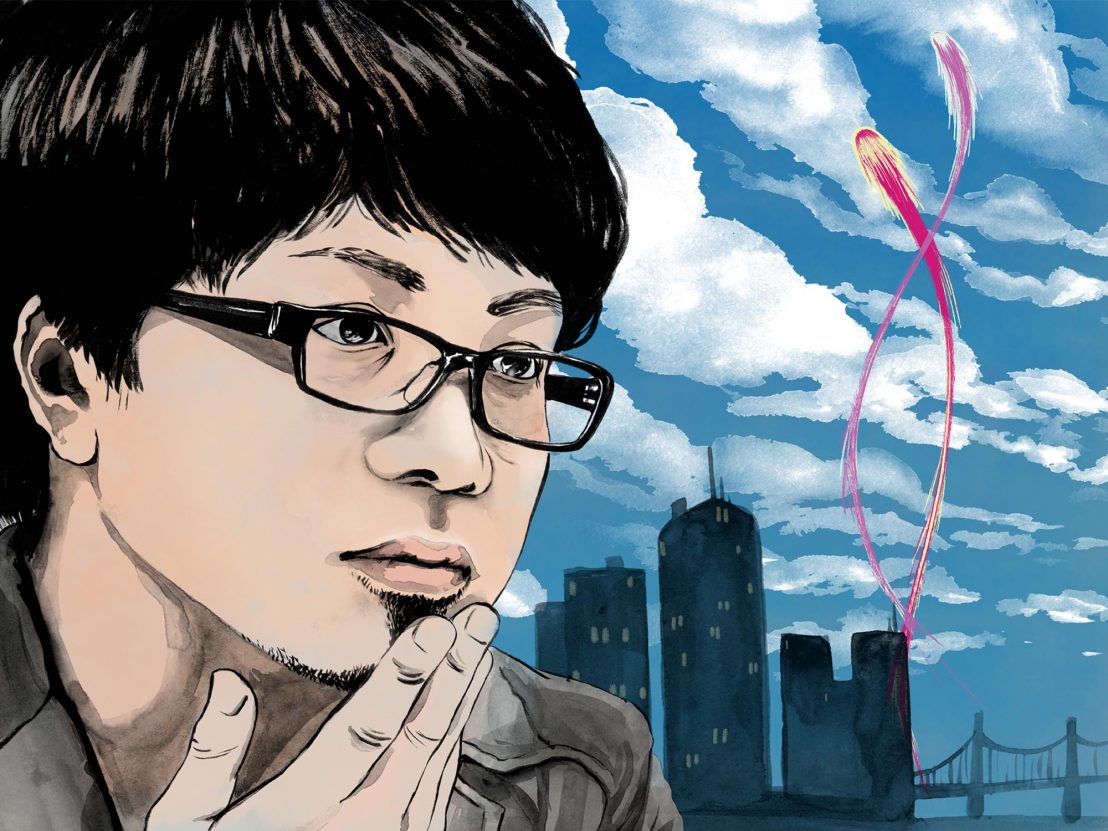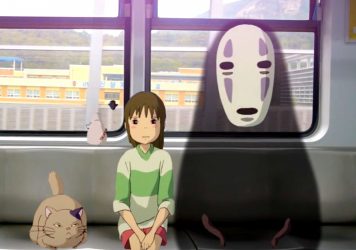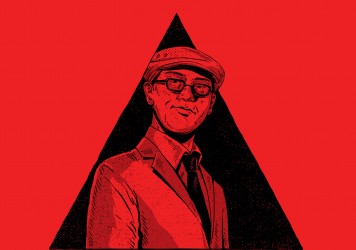
Meet the Japanese director behind the anime smash hit Your Name.
A bona fide box-office sensation in Japan, crowd-pleasing anime Your Name has broken into the top 10 all-time theatrical grosses in its home country, most notably scaling the heights only climbed previously by the films of industry titan Hayao Miyazaki.
For years, it has been a sort of lazy journalistic shorthand to describe director Makoto Shinkai (5 Centimeters Per Second, Journey to Agartha) as ‘the new Miyazaki’; now his latest work has surpassed the takings of Ponyo and The Wind Rises, and looks set to match those of Princess Mononoke and Howl’s Moving Castle.
While in the UK to present his genre-blending, gender-swapping romance in competition at the BFI London Film Festival, Shinkai spoke with LWLies about being endlessly compared to Miyazaki, crafting his own brand of emotionally charged anime, and how the Japanese earthquake of 2011 changed everything.
Shinkai: I wanted to make a boy meets girl film, but I didn’t want the meeting to come at the beginning of the film, I wanted it to come at the end. The focus of the audience has to be on this boy and girl, and we want the audience to love them. The sci-fi and fantasy elements are there to strengthen those emotions.
My first influences were Japanese contemporary authors, including Haruki Murakami, because they describe everyday life, and they accept life as it is. So I wanted to do something like that in animation. I’ve now been doing this for 10 years, so I think I’ve become more professional. Nowadays, I don’t really think in terms of influences, I only think about my motivations, my emotions.
My motivation is different from one movie to another. With Your Name, I’ve changed and society has changed, so my motivation is different with this film. The reason for the change is the earthquake in 2011. That really changed my perception of the world. There’s a line in the film – ‘you never know, Tokyo might go tomorrow’ – and I think everyone in Japan is aware of that. That can happen, and it has happened. You can lose that everyday, normal life.
So I wanted to create a story of recovery. You can’t change the past in real life, but you can change the past in a movie. Your Name has been compared to Shin Godzilla, the new Godzilla movie, because it’s about the Fukushima nuclear plant. It’s been five years since the earthquake, and I think many creators finally know how to deal with the disaster, and we can now create movies, books, whatever about it. It’s just taken us five years to be able to do that.
In the Japanese animation industry there’s a big ideal, and that’s Hayao Miyazaki. He’s someone you look up to and are influenced by. He’s got his own, totally original style. He’s a genius. But… you can’t be Miyazaki, you can only be the second Miyazaki, and that isn’t something to aim for.
In Japan, people in the animation industry, or anime fans, don’t really use that term. But people who don’t normally see animated films – including the media – tend to use it. It’s inevitable, because Miyazaki is so famous.
And he’s a huge influence. He and his team basically established the whole system. They created what Japanese anime is now. It’s impossible not to be influenced by him. I saw Laputa [Castle In The Sky] when I was in Junior High School. That was the first movie I went to see with my pocket money, that I paid for myself – and it was great. There was nothing like it. It’s not like I want to make movies like his movies, but I want to achieve what he achieved emotionally for lots of people, including myself.
I agree, he’s like a father, a teacher, a headmaster… He talks about ethics, and he’s got this idea about how people should live, or what they should live by. He’s an authoritarian figure, if you like. I don’t know if that’s a generation thing or a personal thing, but I can’t tell teenagers what they should do, or how to live their lives. Because I remember those emotions I had when I was a teenager – I remember failure, I remember how great it was to talk with a girl I had a crush on – and I still have them. So our messages are very different.
Your Name is released in the UK 18 November.
Published 16 Nov 2016

See your favourite anime characters as they might appear in real-world settings.

Meet the director of the beautiful new film widely rumoured to be Studio Ghibli’s last hurrah.